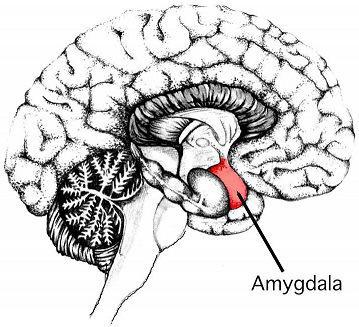We begin with some facts about psychopaths which you may not know (source: Medical Daily):
1. As many as 5% of people may possess psychopathic tendencies.
2. Psychopathy is not a psychiatric diagnosis: Though the term psychopath is often thrown around in criminal justice settings and hypothesizing media, psychopathy is not a recognized psychiatric or psychological disorder. Instead, psychopathy is recognized as either a subcategory or extension of antisocial personality disorder.
3. Hallmark attributes of a psychopath include a lack of empathy for others, selfishness, lack of guilt, and a superficial charm that manifests exclusively to manipulate others. It should be noted that those attributes, except maybe lack of guilt, also characterize pathological narcissists or the Narcissistic Personality Disorder.
4. Psychopathy, contrary to popular belief, does not occur in a either/or binary way. Research has suggested that the condition occurs on a spectrum of more or less — from minor psychopathic tendencies, to moderate or severe characteristics. Some psychopaths may possess certain characteristics of the condition, but not all, and even among severe psychopaths, some manifestations of the “disorder” may be missing.
5. Psychopaths and sociopaths aren’t the same: Though both conditions are associated with a poor sense of “right and wrong” and a lack of empathy, there are a few key differences between them. According to Dr. L. Michael Tompkins, a psychologist at the Sacramento County Mental Health Treatment Center, the difference lies in having a conscience. A psychopath simply doesn’t have one, he told WebMD. They will steal from you without feeling a twinge of guilt — though they may pretend to if they’re caught, so they aren’t “found out.” A sociopath, on the other hand, will understand that taking your money is wrong and may feel remorse, but it won’t be enough to stop their deviant behavior. That means a psychopath has even less regard for others than a sociopath. Another difference between the two lies in the psychopath’s incredible ability to blend in. They can come off as charming, intelligent, and may even mimic emotions they really don’t feel. “They’re skilled actors whose sole mission is to manipulate people for personal gain,” Tompkins said. Sociopaths are more likely to come off as “hot-headed,” and may act more impulsively, demonstrating to others their lack of normal empathy.
6. Psychopaths aren’t always violent: The most important characteristics of a psychopath revolve not around violence, but around lack of empathy, selfishness, and manipulation. While some psychopaths may use these traits to commit crimes, others rely on their manipulative nature and ability to charm for other things. Many psychopaths actually find great success in the business world thanks to their ruthless nature — a disproportionate number of CEOs are actually psychopaths. Some other popular career paths for psychopaths include politics, law, media, and being salespeople.
7. Psychopaths are over-represented in prison: While not all psychopaths are violent, many violent people are psychopaths. Researchers say there is an abnormally high number of psychopaths in prison. Some studies suggest 50% to 80% of prisoners meet criteria for antisocial personality disorder, and 15% of prisoners can be expected to be psychopathic, compared to the 1 to 5% expected in the general population. There isn’t much available research on serial killers and mass murderers, but it would be a reasonable assumption that psychopaths are quite over-represented in those populations as well. That’s because a psychopath’s personality makes it easy to act on violent urges or ideas that empathy, guilt, or fear would stomp out in a normal person.
8. Female and male psychopaths may be very different: Psychopaths studied in prison are usually male. Scientists and psychologists have suggested many reasons for this, ranging from the biological to the simple idea that women can get away with crimes more than men because society is less likely to expect psychopathic behavior among them. Though studies have concluded that the few female psychopaths available for study are just as dangerous as their male counterparts, the way their condition manifests may vary. For example, women are more likely to express their psychopathy through behaviors that are often mistaken for other mental illnesses — another clue as to why there are relatively few identified female psychopaths.

9. Psychopathy is not easy to diagnose because there is no brain imaging or biological test that can inarguably identify a person as a psychopath. But the amygdala may play a significant role in psychopathic tendencies. Certain brain structures have been identified as key players in the processing of emotion and empathy — the lack of which is centrally important to psychopathy. Frontal brain regions have been suggested as relevant in psychopathy, particularly the amygdala. Associated with emotional reactions, decision-making, and fear, the amygdala has been identified in several studies as having reduced integrity or function in those scoring highly on the psychopathy checklist. In one of these studies, people with severe antisocial personality disorder showed a distinct thinning of the cortex and deformations in the amygdala.
10. The most commonly used device for identifying psychopaths is the psychopathy checklist-revised (PCL-R), a 20-item inventory of personality traits and recorded behaviors, developed by Dr. Robert D. Hare in the 1970s. the checklist is administered in a semi-structured interview format, and operates on a point system based on whether a behavior (e.g., pathological lying) can be reasonably matched to the subject. The subject is assigned a score between 0 and 40, with 40 being the maximum psychopathy and 0 the minimum. The cutoff for being labeled as a psychopath is 30 in the United States and 25 in the UK.
So, are you ready to find out if you’re a psychopath?
Below are the 20 traits of the Hare Psychopathy Checklist (PCL-R). For each attribute, give yourself a score of 0 to 2, where 0 = “not at all descriptive of me”; 1 = “somewhat descriptive”; and 2 = “describes me perfectly”.
- glib and superficial charm
- grandiose (exaggeratedly high) estimation of self
- need for stimulation
- pathological lying
- cunning and manipulativeness
- lack of remorse or guilt
- shallow affect (superficial emotional responsiveness)
- callousness and lack of empathy
- parasitic lifestyle
- poor behavioral controls
- sexual promiscuity
- early behavior problems
- lack of realistic long-term goals
- impulsivity
- irresponsibility
- failure to accept responsibility for own actions
- many short-term marital relationships
- juvenile delinquency
- revocation of conditional release
- criminal versatility
When properly completed by a qualified professional, the PCL-R provides a total score that indicates how closely the test subject matches the “perfect” score that a classic or prototypical psychopath would rate. A prototypical psychopath would receive a maximum score of 40, while someone with absolutely no psychopathic traits or tendencies would receive a score of zero. A score of 30 or above qualifies a person for a diagnosis of psychopathy. People with no criminal backgrounds normally score around 5. Many non-psychopathic criminal offenders score around 22.
So, what’s your score? Take our poll!
Take Our PollBut there’s actually a simpler test for psychopathy.
Read this question, come up with an answer, and then scroll down to the bottom for the result. This is not a trick question.
A woman, while at the funeral of her own mother, met a guy whom she did not know. She thought this guy was amazing. She believed him to be her dream guy so much, that she fell in love with him right there, but never asked for his number and could not find him. A few days later she killed her sister.
Question: What is her motive for killing her sister?
[Give this some thought before you answer]
*
*
*
*
*
Answer:
She was hoping the guy would appear at the funeral again.
If you answered this correctly, you think like a psychopath. This test was devised by a famous American psychologist who used it to determine if one has the same mentality as a killer. Many arrested serial killers took part in the test and answered the question correctly.
If you didn’t answer the question correctly, good for you.
If you got the correct answer, please let us know so we can take you off our email list!
Instead of a pic of a psychopath, I chose the one below — the antithesis of psychopaths’ lack of empathy:

Empathy – the antithesis of psychopathy
See also:
- How politicians are like serial killers
- Online trolls are sadistic psychopaths
- Homosexuals are more narcissistic and more prone to pedophilia and murder
- Knockout Game: Epidemic of random vicious deadly assaults
- Hunter College students make abortion a fun party game
- Obama went to bed after being told about Benghazi attack as it was happening
~Eowyn

